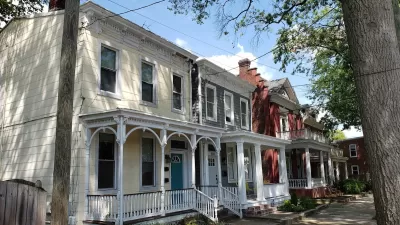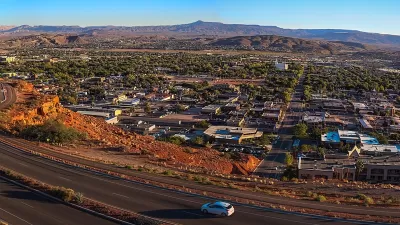Wealthy communities are incorporating their own cities, draining tax revenue and resources away from surrounding neighborhoods.

In a piece for Bloomberg CityLab, Luisa Godinez-Puig and Brian D. Smedley outline the results of their research on the secession of often wealthy, white communities from larger municipalities, such as the secession of the new city of St. George from East Baton Rouge Parish in Louisiana last month. “What we’ve found is that these secessions perpetuate modern-day segregation and limit opportunity for left-behind communities, a form of opportunity hoarding that we call ‘white fortressing.’”
According to the authors, ‘opportunity hoarding’ concentrates public resources in already advantaged areas and limits access to opportunities for other residents. “In Louisiana, it is estimated that St. George’s secession would take away $48.3 million in annual tax revenue from East Baton Rouge Parish — nearly 8% of the parish’s total tax revenue.”
Research also shows that having more governments in a certain geographic area has negative health impacts on Black, but not white, Americans. Meanwhile, “In both Louisiana and Georgia, only citizens inside the boundary of the proposed new city get to vote by referendum, even if the incorporation would decimate the tax revenue for the surrounding community.”
FULL STORY: The New ‘White Fortress’ Cities of the American South

Alabama: Trump Terminates Settlements for Black Communities Harmed By Raw Sewage
Trump deemed the landmark civil rights agreement “illegal DEI and environmental justice policy.”

Planetizen Federal Action Tracker
A weekly monitor of how Trump’s orders and actions are impacting planners and planning in America.

How Atlanta Built 7,000 Housing Units in 3 Years
The city’s comprehensive, neighborhood-focused housing strategy focuses on identifying properties and land that can be repurposed for housing and encouraging development in underserved neighborhoods.

In Both Crashes and Crime, Public Transportation is Far Safer than Driving
Contrary to popular assumptions, public transportation has far lower crash and crime rates than automobile travel. For safer communities, improve and encourage transit travel.

Report: Zoning Reforms Should Complement Nashville’s Ambitious Transit Plan
Without reform, restrictive zoning codes will limit the impact of the city’s planned transit expansion and could exclude some of the residents who depend on transit the most.

Judge Orders Release of Frozen IRA, IIJA Funding
The decision is a victory for environmental groups who charged that freezing funds for critical infrastructure and disaster response programs caused “real and irreparable harm” to communities.
Urban Design for Planners 1: Software Tools
This six-course series explores essential urban design concepts using open source software and equips planners with the tools they need to participate fully in the urban design process.
Planning for Universal Design
Learn the tools for implementing Universal Design in planning regulations.
Caltrans
Smith Gee Studio
Institute for Housing and Urban Development Studies (IHS)
City of Grandview
Harvard GSD Executive Education
Toledo-Lucas County Plan Commissions
Salt Lake City
NYU Wagner Graduate School of Public Service





























